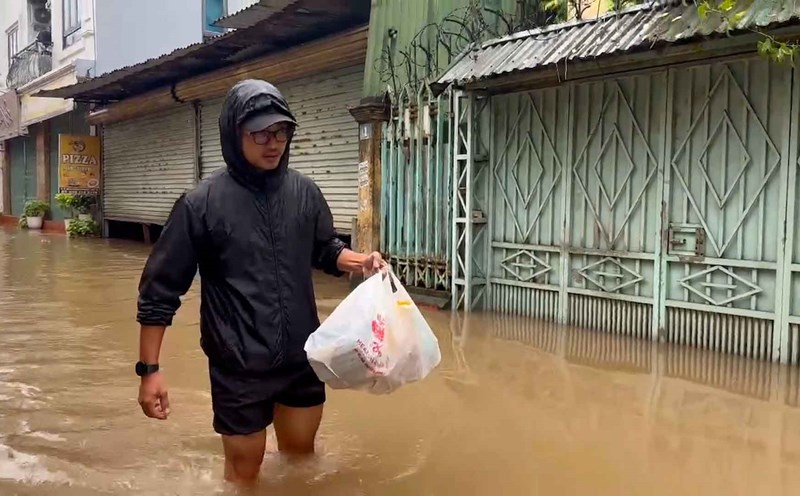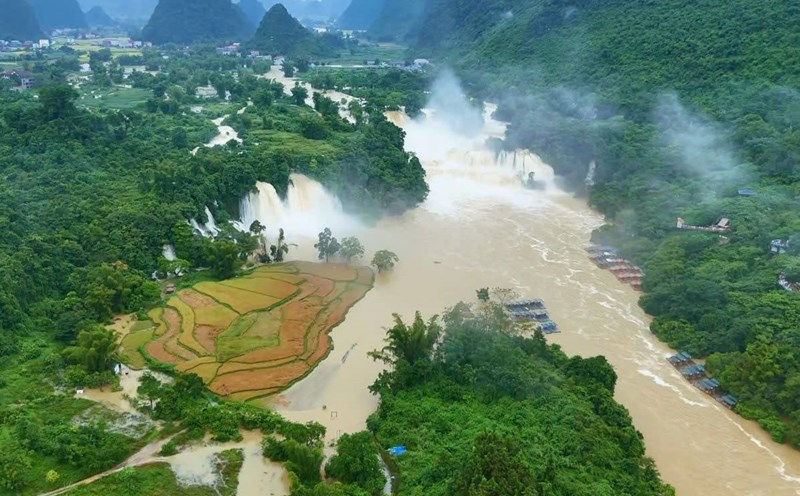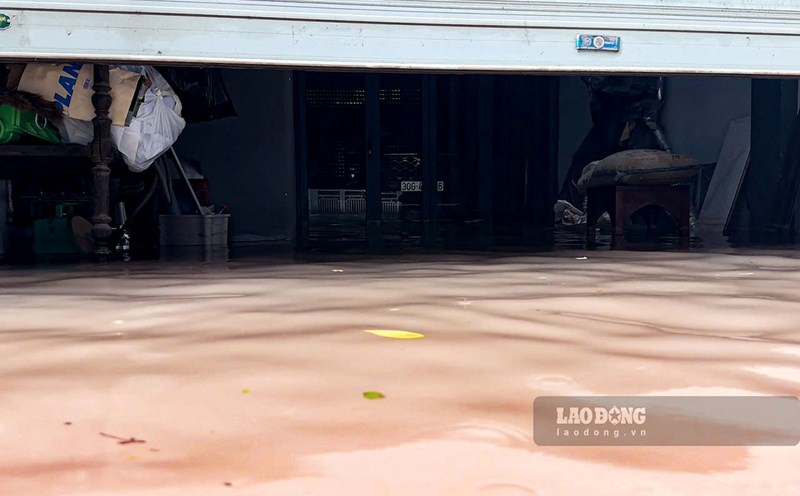Prolonged heavy rain caused many roads to be deeply flooded, forcing people to wade through water or move for many hours in humid conditions. This not only causes discomfort but also poses many potential skin diseases, especially when floodwaters contain waste, mud and bacteria.
Doctors warn that after each flood, the number of cases of skin diseases increases sharply. Long-term exposure to dirty water damages the skin's natural protective layer, making it susceptible to inflammation, infection, or fungus.
dermatitis, fungus and infections are the three most common diseases
According to dermatologists, the most common diseases when traveling on flooded roads for a long time are contact dermatitis, fungal infections, and soft tissue infections.
When the skin is soaked in water for a long time, the natural lipid layer is lost, reducing its ability to protect against chemicals, bacteria, or waste in water. This condition can easily lead to redness, itching, peeling or swelling.
When the skin is exposed to a humid and dirty environment for a long time, the skins barrier weakens, allowing bacteria and fungi to invade and cause inflammation, says Dr Eva R. Parker, a dermatologist at Vanderbilt University Medical Center (USA).
In addition, people who wear wet shoes or tight-fitting clothes are susceptible to foot-and-mouth disease, massaging, orters. Small scratches can also become a gateway for Staphylococcus or Streptococcus bacteria to invade, causing redness, pus and pain.
In studies on flood skin disease, doctors have noted more serious cases such as leptospira infection through the skin, a type of bacteria that can be penetrated when the skin comes into contact with water containing animal urine.
Keeping your skin clean and dry is the simplest way to prevent it
Experts recommend that the most important thing is to keep your skin dry and clean immediately after leaving the flooded area. Wash them with mild disinfection soap, dry them thoroughly and change them to dry clothes as soon as possible.
If you are forced to wade through water, wear rubber boots, gloves and long clothes to limit contact. When there are scratches, wash them, disinfect them and bang them to avoid infection.
Dr. Arianne Shadi Kourosh, a dermatologist at Massachusetts General Hospital, University of Harvard (USA), noted: After floods, high humidity and polluted water sources caused microorganisms to thrive. Skin protection, even a small step, can help prevent many serious complications".
In addition, you should drink enough water, eat green vegetables and fresh fruits to increase skin resistance. If you see red, itchy or pus-red skin, you should go to a medical facility immediately for a check-up, do not apply medicine of unknown origin.
During the rainy season, protecting the skin not only helps prevent skin diseases but also reduces the risk of infection with many diseases transmitted through water.










